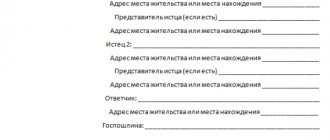A gift of money is a transaction made by agreement of two parties, in which one of them, the donor, transfers or undertakes to transfer the ownership of the other party, the donee, as a gift of funds.
Additionally
The main feature characteristic of all gift transactions is their gratuitous nature . This means that when they are committed, any counter-provision on the part of the donee is unacceptable.
Cash is classified as movable property (clause 2 of Article 130 of the Civil Code) and is not subject to registration. They can be in the form of cash directly from their owner or at the organization’s cash desk, in non-cash form in bank accounts, and also embodied in payment and monetary documents, or in easily marketable securities.
Money, as an object of donation, must necessarily belong to the donor as a property. When making this transaction, he must clearly express his intention to make a gift to another person, since when transferring funds, his property is irrevocably reduced.
The recipient, by accepting money as a gift, on the contrary, increases his property. And this can only happen with his consent to accept the gift.
Gift agreements, the subject of which is money, are most often concluded between citizens (individuals), as well as between individuals and legal entities or individual entrepreneurs. The parties to a transaction, as subjects of civil law, must have legal capacity and capacity . In relation to some of them, the Civil Code contains a number of prohibitions and restrictions related to donations (Articles 575 and 576).
For your information
Citizens are often interested in the question of whether there are restrictions on the total amount of money that can be donated and whether they are subject to personal income tax (NDFL). In fact, the legislation does not establish any restrictions on the amount of donated amounts. Funds received in this way are not subject to taxation.
It’s another matter if the donor is a legal entity or individual entrepreneur. Then the recipient must pay the specified tax in the amount of 13 percent on the amount of donated funds exceeding 4,000 rubles (a non-taxable amount in accordance with paragraph 28 of Article 217 of the Tax Code).
How to register a donation of funds
The procedure for registering and completing agreements for the donation of property, including funds, is regulated by the rules provided for in Articles 572 - 582 of the Civil Code. Since money is classified as movable property , the same requirements apply to the registration of gift transactions with it as to contracts for the gift of movable things.
Based on Article 574 of the Civil Code, they can be carried out both orally and in writing . When the subject of a gift agreement is money, and its parties are individuals, then the law allows the completion of a real transaction by transferring (handing over) the gift to the donee without written documentation. It is advisable to do this in the presence of witnesses. But, if the donor is a legal entity, and the transferred amount exceeds 3,000 rubles, then such an agreement can only be concluded in writing.
Additionally
Similar requirements apply to the execution of consensual gift agreements containing the donor’s promise to gift a certain person with funds in the future. Failure to comply with these requirements will result in the transaction being void .
If the deed of gift is concluded in writing, then, accordingly, it must be correctly drawn up, that is, it must contain all the necessary and important information. These are, first of all, details relating to the parties to the agreement, an indication of the specific type of funds, their exact amount, the date and place of execution of the transaction, as well as the deadline for its completion, the rights and obligations of the donor and donee, and their signatures. The document is drawn up in two copies .
Regardless of the form in which the donation is made, to confirm it it is best to draw up a document that certifies the transfer of money into ownership from the donor to the donee. This may be an act of acceptance and transfer of funds or an ordinary receipt .
✅ Rules for registering a target deed of gift
When donating money from relatives, there is no need for a written agreement, regardless of the amount of cash. If the donor plans to give money upon the occurrence of an event (for example, a wedding or receiving a diploma), or he specifies the actual time of delivery of his gift, then a written form of donation is required.
Expert opinion
Dmitry Nosikov
Lawyer. Specialization: family and housing law.
When giving small amounts to your loved ones, there really is no point in drawing up an agreement. But when donating significant funds to purchase an apartment, it is better not to rely on family understanding. Judicial practice shows the recklessness of such actions. To avoid problematic situations, it is imperative to prepare the document in writing. In some cases, it would not hurt to have the deed of gift certified by a notary.
If the donor is an individual entrepreneur/legal entity, then a written agreement is required.

![Bank Zenit mortgage and refinancing [credit][sale]](https://bgrielt.ru/wp-content/uploads/bank-zenit-ipoteka-i-refinansirovanie-credit-sale4-330x140.jpg)






